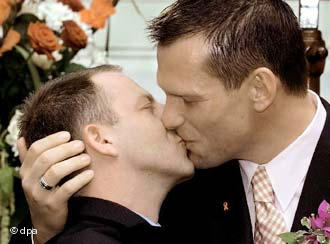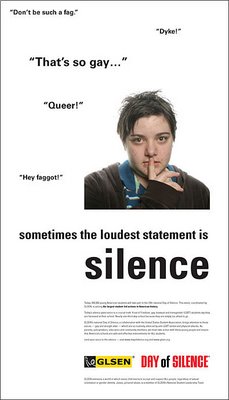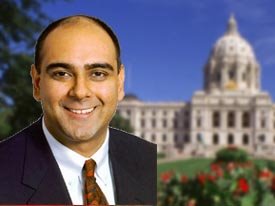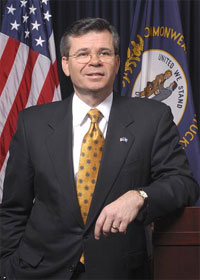
This spring, shareholders at such big companies as ExxonMobil, Ford and American Express are voting on whether gay and lesbian people deserve protection against discrimination in the workplace.
But even as battles over gay rights flare up in the corporate world, there's no doubt about who's winning the war.
More than 80 percent of companies in the Fortune 500 now ban discrimination on the basis of sexual orientation. Some 249 of the Fortune 500 offer health and other benefits to the same-sex partners of their employees. That's up from just 28 a decade ago.
Last year, Wal-Mart , America's biggest employer, agreed to support a network for its gay, lesbian, bisexual and transgender (GLBT) workers, joining such firms as Citigroup, DuPont and IBM. All these trends are moving in one direction - towards more rights for gay and lesbian people.
This is remarkable, given the setbacks that gay rights have taken in the political arena, especially around the issue of gay marriage.
"Corporate America is ahead of government in providing equal treatment for GLBT people because it knows that fairness is good for business," declares Joe Solmonese, president of Human Rights Campaign, the nation's largest gay and lesbian civil rights group.
For the past four years, the Human Rights Campaign has ranked big companies on gay rights issues. It looks at non-discrimination policies, domestic partner benefits, advertising in gay media, philanthropy and support for gay employee groups. This year, 101 companies received the highest possible 100 percent rating - up from 56 last year and 13 when the survey was first done in 2002.
These firms aren't just on Wall Street or in Hollywood. For the first time, this year's top performers includes oil and gas companies and Chevron, a chemical company and a defense firm.
That's not to say that the debate over gay issues in business is settled. Shareholder groups that favor gay rights, led by New York City's pension funds and socially responsible investors, filed resolutions this year at more than 20 companies, asking them to expressly prohibit discrimination based on sexual orientation. Most agreed, but some - notably ExxonMobil, the biggest company in America by revenues - oppose the idea.
ExxonMobil says the resolution is unnecessary because it has existing "zero-tolerance" policies that ban "discrimination or harassment for any reason, including sexual orientation."
Gay rights advocates say the policy should be made explicit. Zack Wright, a lawyer with the Pride Foundation, a Seattle nonprofit that supports GLBT causes, says, "What is a gay employee supposed to do if he or she is discriminated against? If it's not written down, there's nothing they can do."

Other companies opposing resolutions that ask them to ban discrimination based on sexual orientation include Leggett & Platt, a diversified manufacturer based in Carthage, Missouri, and Amsouth, a regional bank based in Birmingham, Alabama.
Meredith Benton of Walden Asset Management, which filed with Leggett & Platt, says, "You want to be sure you have access to the best and brightest employees. That is most sucessfully done when you have an inclusive workplace."
Meanwhile, shareholders filed resolutions asking American Express, Bank of America and Ford to consider taking sexual orientation out of their anti-discrimination policies.
Yes, there's a backlash underway. The Amex resolution, which was defeated Monday, says, among other things, that "domestic partner benefit policies pay people who engage in homosexual sex acts, which were illegal in this country for hundreds of years, and have been proscribed by the major traditions of Judaism, Christianity and Mohammedism for a thousand years or more."
Interestingly, at Amex, the supporters of the anti-gay resolution could muster only 2 percent of the vote. Backers of gay rights at Exxon last year got 29 percent. This year, Exxon shareholders vote May 31.
Why are more companies embracing gay rights? Among other things, they want to attract gay consumers. Gay purchasing power in the U.S. has been estimated at $641 billion a year by one gay-friendly research firm.
To encourage its 600,000 members to support gay-friendly companies, the Human Rights Campaign has created a "Buying for Equality" guide that puts companies and brands in green, yellow and red categories. So, for example, PepsiCo's Aquafina bottled water gets a green light, while Nestle's Poland Spring gets a stop sign. Best Buy is favored over Circuit City, Banana Republic over L.L. Bean. Even dog foods get rated. (Iams yes, Alpo no.) You can check out the guide at www.hrc.org/buyersguide.
But consumer power cannot explain why defense contractor Raytheon gets a perfect score from the HRC. (Gays are not a big market for cruise missiles.) There, the issue comes down to attracting and engaging workers. No company wants to make any of its people feel uncomfortable or unwanted.
Daryl Herrschaft, director of the HRC's workplace project, says, "To any reasonable business person, the evidence is almost undeniable that this is the right thing to do."
One interesting thing about this quiet revolution is that it's gaining momentum even as as opponents of gay rights push back. Recall that last year both Microsoft and Ford got caught up in gay-rights controversies - a local minister urged Microsoft not to support a non-discrimination law in the Washington state legislature and religious conservatives lobbied Ford to remove its ads from gay publications. In the end, both firms came down on the side of gay rights.
It's not clear whether the Microsoft and Ford executives made cold business calculations or whether they followed their hearts. In the end, it probably doesn't make much difference.
from CNN Money
 A college student who was allegedly “gay bashed” on the campus of Hope College last week was asked by Holland Police to take a lie detector test.
A college student who was allegedly “gay bashed” on the campus of Hope College last week was asked by Holland Police to take a lie detector test.



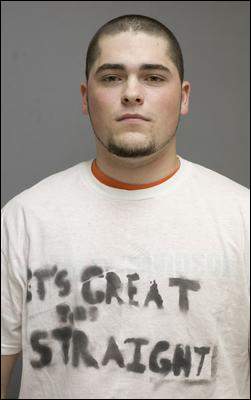

 Each season, "Saturday Night Live'' throws together a couple of "best-of'' clip shows, paying tribute to some prominent cast member (John Belushi, Eddie Murphy, Gilda Radner) or a regular guest host (Tom Hanks, Steve Martin).
Each season, "Saturday Night Live'' throws together a couple of "best-of'' clip shows, paying tribute to some prominent cast member (John Belushi, Eddie Murphy, Gilda Radner) or a regular guest host (Tom Hanks, Steve Martin).


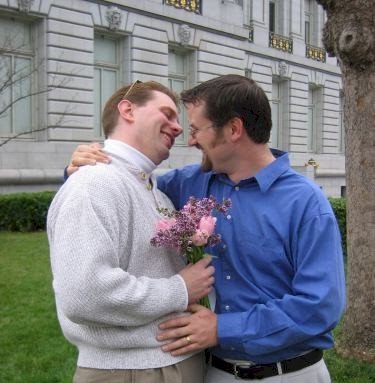

 This spring, shareholders at such big companies as ExxonMobil, Ford and American Express are voting on whether gay and lesbian people deserve protection against discrimination in the workplace.
This spring, shareholders at such big companies as ExxonMobil, Ford and American Express are voting on whether gay and lesbian people deserve protection against discrimination in the workplace.


